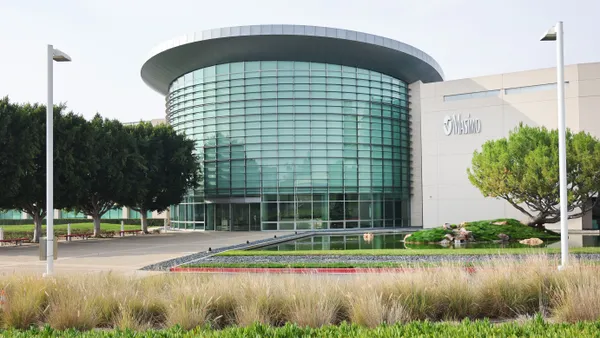Dive Brief:
- The U.K. government-run National Health Service, which is facing labor unrest and accusations that long delays for treatment are costing patient lives, published its first policy paper aimed at increasing access to innovative medical technologies.
- Effective use of medtech will reduce wait times for treatment and speed diagnosis, freeing up clinician time, the government said. The NHS said it intends to build resilient supply chains and use the latest data on technology effectiveness ensure the health system pays reasonable prices for medical devices.
- The London-based Health Tech Alliance, a coalition of medtech companies, said the report includes many of the group’s recommendations, but it also identified shortcomings, saying the plan fell far short of what’s needed to speed adoption of life-saving technology.
Dive Insight:
The NHS is rolling out its new medtech strategy as it finds itself at the center of a storm over worker pay and conditions. More than 40,000 nurses and paramedics in England and Wales walked off the job on Monday in what the Financial Times called the biggest strike action in the health service’s history.
The strike comes as the system is already stretched thin. The COVID-19 pandemic compounded pressures on the health service, where patient death rates remain higher than normal, prompting the president of the Royal College of Emergency Medicine last month to warn that 300 to 500 people could be dying each week because of delays in urgent care, according to media reports. The Economist magazine, which did its own analysis, put the number at 260 deaths per week attributable to delays in emergency care.
In unveiling its medtech strategy, released Friday, the NHS said the policy is designed to improve patient safety and health outcomes. The government said it spends £10 billion ($12 billion) a year on medical technology, including everything from syringes and wheelchairs to cardiac pacemakers and X-ray machines.
Its goals include increasing the supply of the best equipment to enable faster diagnosis, treatment and discharge of patients to free up hospital beds and encouraging innovative research to secure the U.K.’s position as a global science “superpower,” the NHS said.
The Health Tech Alliance applauded plans outlined in the report to make the supply chain more resilient, boost awareness among clinicians, make greater use of real-world evidence, streamline approaches to technology across the health system and centralize data collection.
Still, it takes about 17 years for a medical device to be adopted in the NHS, according to the Health Tech Alliance.
“It is extremely disappointing that the strategy did not touch on faster adoption routes,” the group said. “The strategy goes nowhere near enough to truly address the challenges in medtech adoption in England,” Ellie Kearney, policy lead for the alliance, wrote in a LinkedIn post.
Nor did the paper offer sustainable long-term funding solutions, the alliance said. It said it would continue to work with the U.K.’s MedTech Directorate to address those concerns.
The British In Vitro Diagnostics Association said the government’s new strategy would support better healthcare for patients and save resources for the NHS, calling it “another step forward to achieving the wider use of essential diagnostic tests.”












